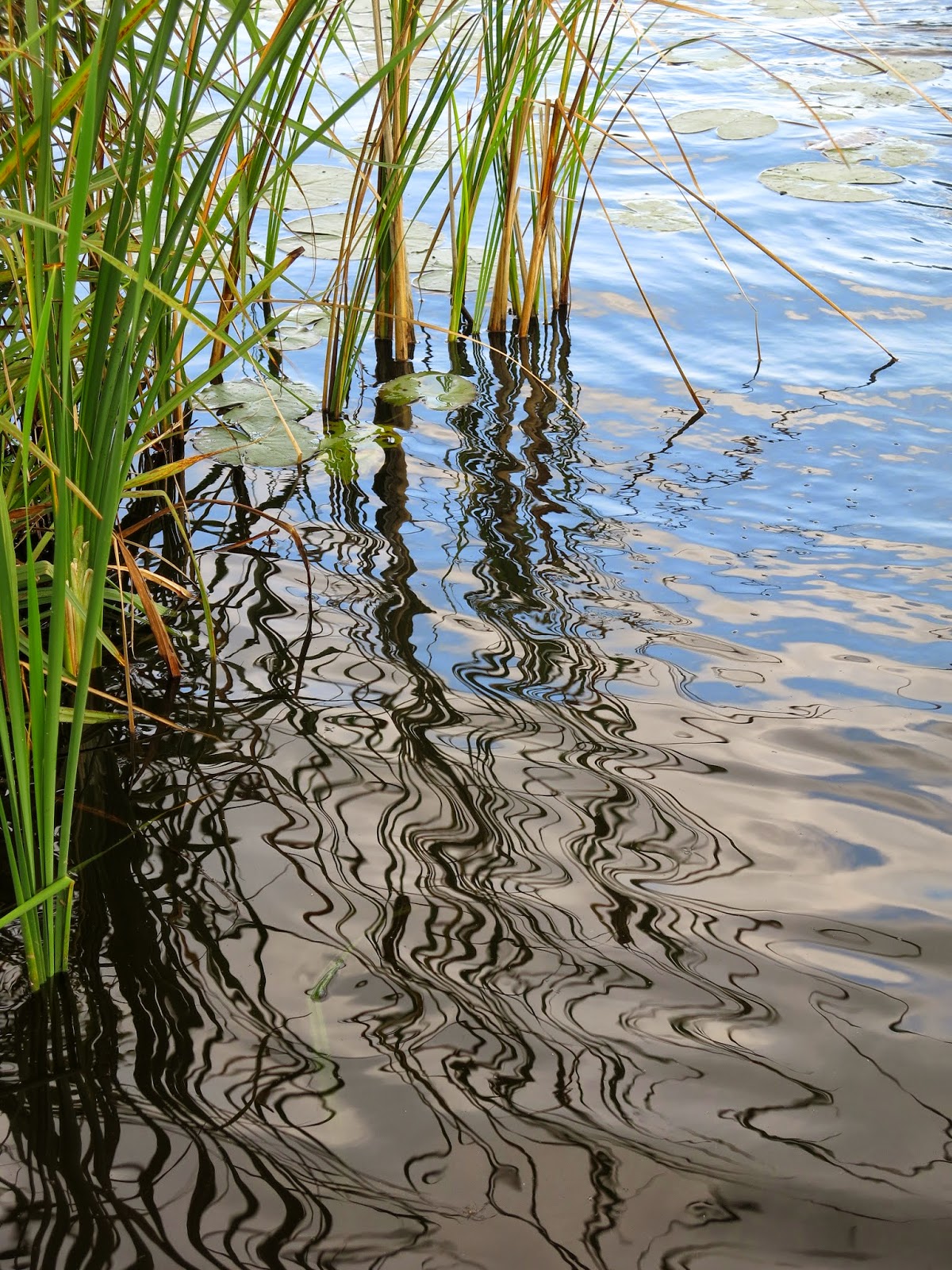The past weekend was one of culture, full of events, a last
chance to celebrate summer. At least, for those organising events. After
this weekend in the middle of September, we are supposed to pick up our “normal”
lives again, whatever that is. Playtime is over.
There was a lot to choose
from, and because of the marvellous summer weather and the pull/allure of a
part of Holland which is in my eyes extremely beautiful, I went up north, to
the border of Overijssel, Friesland and Drenthe. A land of big farms, sheltering
under low, moss covered thatched roofs. A land of small villages, lush green
fields dotted with cows, a land a narrow country lanes, lined by mature trees,
of churches, reed lands, lakes and waterways.
Overcinge
One of the "wedding dresses" made from natural materials and on dsiplay along the drive
I was heading for a
Country Fair in Overcinge, a farm with a mansion, a gateway and imposing drive,
an elegant garden house where people were supposed to drink tea, and lovely
views across the fields. This Fair, like so many others, was a fair for local
produce, special oils, breads, soaps, sheepskins, leather goods made by
artisans, and arts and crafts in general. The makeshift cafe’s offered good
coffee albeit in paper cups, nice cakes and pretty healthy sandwiches.
Everything looked very attractive, not the least because of the sunny weather.
Peaceful barns and fields
Exterior and interior of the small church of Nijeveen
When I had seen all I wanted to see and bought
some special foods, I meandered along dappled country lanes and via small
hamlets and villages towards Sint JansKlooster. All the small country churches
were open, a rare feat in Holland. But it was “Open Monument Weekend”, so I
could go into any church I fancied. And there are many very old churches in
that area, dating back from way before the Reformation.
Sint JansKlooster is
a centre for the reed lands, which owe their existence to the digging of peat.
That resulted into shallow lakes. The reeds which grow there are cut and
harvested each autumn and provide jobs for many. Or at least they did. The
reeds seem to diminish, although that is not obvious to non professionals. It
stands to reason that thatch is not unusual here.
Sint JansKlooster and the reed lands
After a short walk
through the reed lands on a boardwalk, with an occasional glimpse of the lake –
the reeds are very high at this time just before they are cut down - I went on
to Vollenhove. A
surprisingly attractive market town, once a port on what was the Zuiderzee and
now is the IJsselmeer. It still has a harbour, nowadays occupied by pleasure
boats. Although there are still fishermen mainly catching eel. Smoked eel is a
speciality, and I can never resist a bun with eel smoked locally. The cafeteria
was adjacent to the smokehouse. It couldn’t have been better.
A farmhouse between Sint JansKlooster and Vollenhove
Pipe organ and Tower of the Maria Church in Vollenhove
The Marxveld gardens with the Maria Church
The Marxveld Mansion
A pity I arrived
rather late in Vollenhove, around 5 pm, when all the monuments and churches
were closing. The most interesting church, the Maria Church, is never open
except for Sunday worship and on the Open Day. A man who was just locking up,
was so kind to open the church again for me so that I could have a quick peep.
I’ll have to come back next year, as I missed the other big church standing
guard over the harbour, and several mansions and big houses in the centre of Vollenhove.
Had I known of their existence, I would have started my day in Vollenhove – and
perhaps never have gotten as far as the Fair! Even just roaming the streets,
quiet now that most attractions were closed, seeing the imposing church and a
very nicely laid out garden next to the smaller church, made my visit worthwhile.
The main church at the harbour
Houses and an important building around the harbour
Driving down I witnessed a glorious sunset, the sun a big,
red ball. That is one advantage of this flat land reclaimed from the sea, the
wide vistas.





















.JPG)
.JPG)
.JPG)
.JPG)
.JPG)
.JPG)
.JPG)
.JPG)
.JPG)
.JPG)
.JPG)